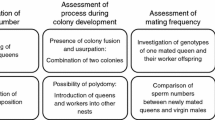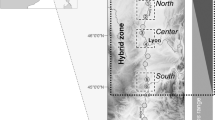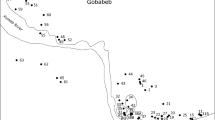Abstract
Detailed knowledge of the mating system in specific social insect populations is essential for testing general evolutionary hypotheses of multiple paternity in eusocial Hymenoptera. We have studied the mating frequency of queens in a polygynous population of the red ant Myrmica sulcinodis. Genetic mother-offspring analysis showed that double mating occurred at a considerable frequency, but that the effective number of queen-mates remained close to one. After quantifying the effects of multiple maternity (polygyny) and multiple paternity (polyandry) on the genetic diversity of workers, we conclude that multiple paternity in M. sulcinodis did not evolve as an adaptation to increase genetic variation within colonies. Contrary to the predictions from `genetic variability' hypotheses, we found a positive correlation between colony-specific queen number and the average number of mates per queen. Such positive association of queen number and frequency of multiple mating was also found after analysing comparative data across six species of Myrmica ants. These results suggest that resticted dispersal of young queens may be a common factor promoting both polygyny and polyandry at the same time, and that moderate degrees of multiple mating may be an unselected consequence of (1) mating at low cost when mating occurs close to the nest and (2) mating in swarms with a highly male biased operational sex ratio. Future comparative tests of genetic-variability hypotheses should therefore not include species with such evolutionary derived mating system characteristics.
Similar content being viewed by others
Author information
Authors and Affiliations
Additional information
Received: 30 April 1998 / Accepted after revision: 19 August 1998
Rights and permissions
About this article
Cite this article
Pedersen, J., Boomsma, J. Positive association of queen number and queen-mating frequency Myrmica ants: a challenge to the genetic-variability hypotheses. Behav Ecol Sociobiol 45, 185–193 (1999). https://doi.org/10.1007/s002650050552
Issue Date:
DOI: https://doi.org/10.1007/s002650050552




